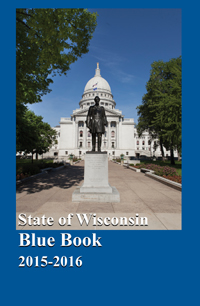|
The "Wisconsin Cares" Agenda: Supporting
Those With Alzheimer's and the People Who Care For Them
We all know someone who has been afflicted by Alzheimer’s or dementia. It is
painful to watch as a loved one struggles with the memory loss and other
challenges that come with these debilitating conditions. More than five
million Americans are living with Alzheimer’s disease and as the population
continues to age, this number will continue to climb. This new reality
requires serious, long-term solutions for those who suffer from it and those
who have dedicated time to serve as caregivers.
According to the Alzheimer’s Association, Alzheimer’s is the 6th leading
cause of death in the United States, killing more individuals than breast and
prostate cancer combined. It is the only cause of death in the top 10 that
cannot be prevented, cured, or consistently slowed. Risk factors include age,
family history, and genetics. One in three seniors dies with Alzheimer’s or
another form of dementia.

Dementia is a general term for a decline in mental ability where it is severe
enough to interfere with daily activity. While dementia is not a specific
disease, it is a term that describes a wide range of symptoms relating to the
decline in mental ability. Dementia is caused by damage to the brain cells.
While there is no specific cause of this damage, physicians point to physical
exercise and diet as methods of lowering risk. Currently, there is no cure
for dementia.
Alzheimer’s is a type of dementia that causes problems with memory, thinking,
and behavior. Alzheimer’s is the most common form of dementia. Symptoms can
slowly worsen over time until they interfere with daily activities and tasks.
The majority of individuals that suffer from Alzheimer’s are 65 and older.
There is no current cure for Alzheimer’s disease.
In 2015, more than 15 million caregivers provided an estimated 18.1 billion
hours of unpaid care valued at over $221.3 billion. In Wisconsin, there are
currently 110,000 people living with Alzheimer’s. There are 192,000
caregivers providing care for these individuals.
In response to this nationwide epidemic, a group of legislators created the
Wisconsin Cares legislative package to seek ways to address some of the major
issues related to the prevalence of dementia and Alzheimer’s in Wisconsin.
The proposals in the Wisconsin Cares package were a result of the Speaker’s
Task Force on Alzheimer’s and Dementia, a bipartisan group of legislators
selected by both parties to seek ways to better serve the needs of those
suffering from Alzheimer’s and their caregivers. The task force met with
stakeholder groups, individuals from the medical profession, and caregivers.
They held multiple public meetings across the state to gather input. All of
the bills in the package were created and passed on a bipartisan basis to
assist those suffering from Alzheimer’s and dementia and their caregivers.
This session, the following bills were passed and signed into law as part of
the Wisconsin Cares agenda:
2015
Wisconsin Act 273: Adds $1 million to the Alzheimer’s Family and
Caregiver Support Program (AFCSP) for respite care. Respite care provides
temporary care for those living with Alzheimer’s and other dementias, so that
primary caregivers (frequently family members) get a break from their
caregiving responsibilities. The AFCSP provides a much-needed resource for
caregivers and their families so that they do not become overwhelmed caring
for loved ones.
2015
Wisconsin Act 274: Increases training grants to local mobile crisis teams
by $250,000. This funding will help mobile crisis units that can assess those
that are suffering from symptoms of Alzheimer’s or other dementias instead of
relocating them to hospitals.
2015
Wisconsin Act 272: Requires the Department of Health Services (DHS) to
propose a pilot program for a specialized dementia crisis unit. There is a
lack of appropriate placement of individuals in an Alzheimer’s or dementia
crisis situation. DHS would be required to reach out to counties to assess
their interest in forming coalitions to address this problem.
I am optimistic that the legislation signed into law will be an effective
effort to assist those suffering from Alzheimer’s and dementia and their
caregivers. For more information on the Wisconsin Cares legislative package
or Alzheimer’s and dementia, please visit: http://legis.wisconsin.gov/2015/committees/assembly/ad/
|
|
Useful
Information
Wisconsin
State Lottery Sales
A brief distributed by the Wisconsin Taxpayers Alliance (www.wistax.org) recently analyzed the status
of legal gambling in Wisconsin. The following table demonstrates the
distribution of these sales among the different types of state lottery
games. Please note that this data is related to gaming offered by the Wisconsin Lottery, a division of the Wisconsin Department of Revenue.
Instant Game Sales Soar
Ticket Sales by Game, $ Millions, 2001 vs. 2009 vs. 2014
|
Game
|
2001
|
2009
|
2014
|
01-09
% Chg.
|
09-14
% Chg.
|
% Total
|
|
Instant
|
$238.0
|
$276.8
|
$339.0
|
16.3%
|
22.5%
|
59.6%
|
|
Powerball
|
67.1
|
85.4
|
86.9
|
27.3%
|
1.8%
|
15.3%
|
|
Pick 3 / 4
|
35.4
|
38.3
|
37.0
|
8.2%
|
-3.4%
|
6.5%
|
|
SuperCash
|
29.2
|
27.4
|
24.5
|
-6.2%
|
-10.6%
|
4.3%
|
|
Megabucks
|
22.9
|
20.7
|
18.0
|
-9.6%
|
-13.0%
|
3.2%
|
|
Badger 5
|
0.0
|
24.8
|
23.8
|
na
|
-4.0%
|
4.2%
|
|
Mega Mill.
|
0.0
|
0.0
|
33.9
|
na
|
na
|
6.0%
|
|
Others
|
8.6
|
0.0
|
5.7
|
-100.0%
|
na
|
1.0%
|
|
Total
|
401.2
|
473.4
|
568.8
|
18.0%
|
20.2%
|
|
*Source: Wisconsin Taxpayers
Alliance
|
|
Senator Howard Marklein is pleased to provide
this legislative E-Update for the constituents of the 17th State Senate
District. Please feel free to share this update with other interested
citizens and taxpayers. You are receiving this update because you have either
subscribed or contacted Senator Marklein directly.
Please Note: If you have contacted the Senator with specific input or
questions, a personal response is forthcoming, if need be.
UNSUBSCRIBE: If you would like to remove your e-mail address from the
E-update mailing list, please reply to this message with the word
“unsubscribe” in the subject line.
State Capitol - Room 8 South -
Post Office Box 7882 - Madison, Wisconsin 53707 - Phone: (608) 266-0703


|





